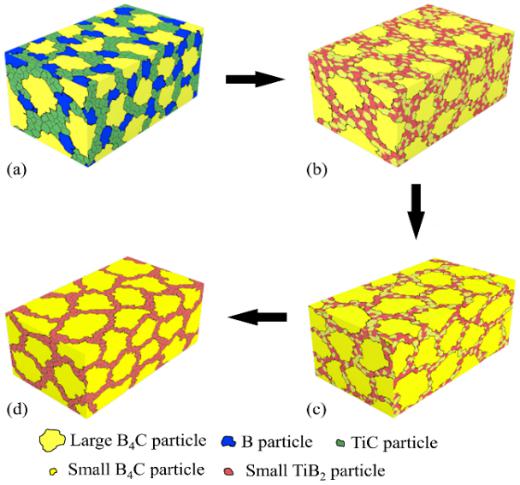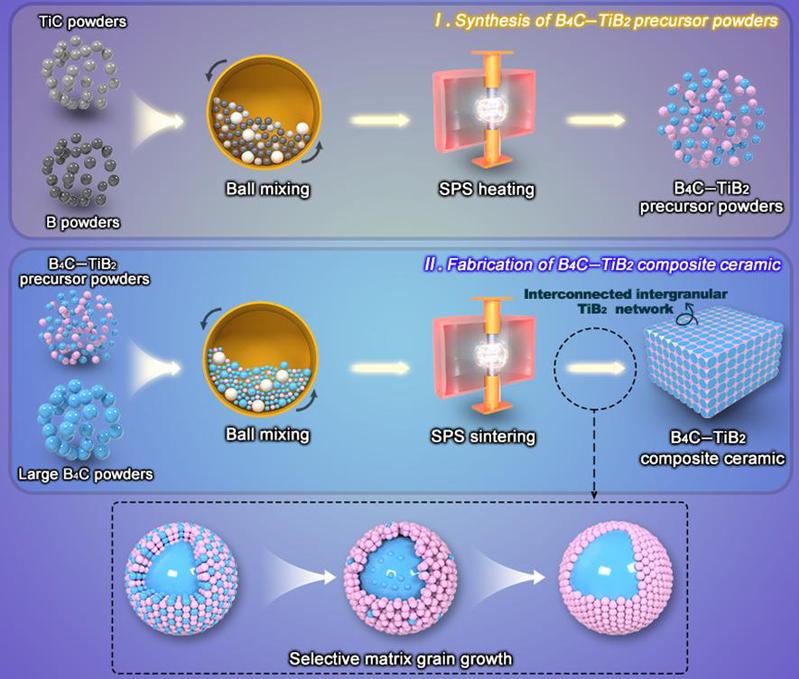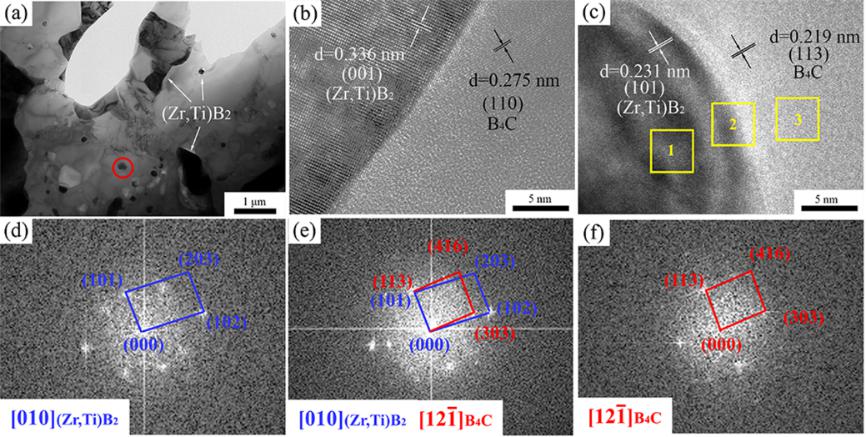近日,机械工程学院赵峻老师在国际权威期刊《Journal of Advanced Ceramics》(中科院1区TOP,IF:16.9)、《Journal of the European Ceramic Society》(中科院2区TOP)、《Journal of the American Ceramic Society》(中科院2区)和《Journal of Alloys and Compounds》(中科院2区TOP)连续发表导电陶瓷的最新研究成果。
系列研究首先以B4C‒TiC‒B混合粉体为原料,采用放电等离子烧结制备B4C‒TiB2复相陶瓷,在探索复相陶瓷显微结构与其力学和电学性能关系的基础之上,成功实现了B4C‒TiB2复相陶瓷显微结构和力电性能的可控调节,相关成果发表在《Journal of the American Ceramic Society》。在探明B4C‒TiC‒B反应机理的基础上,对复相陶瓷强韧化机理和导电机理做了深入分析,相关成果发表在《Journal of the European Ceramic Society》。

B4C‒TiC‒B混合粉体反应示意图
在上述研究的基础上,作者采用两步法制备B4C‒TiB2复相陶瓷,详细研究了原料TiC和B的粒径匹配对B4C‒TiB2复合粉体形貌的影响,阐明了TiC‒B体系的反应机理和基体晶粒选择性吸收生长机理,相关成果发表在《Journal of Advanced Ceramics》。

B4C–TiB2复相陶瓷制备工艺及显微结构演变示意图
此外,作者采用放电等离子烧结原位制备B4C‒(Zr,Ti)B2复相陶瓷,研究了TiC和ZrC摩尔比对复相陶瓷致密化、显微结构和力电性能的影响,揭示了固溶体(Zr,Ti)B2的形成机理,相关成果发表在《Journal of Alloys and Compounds》。

B4C‒(Zr,Ti)B2复相陶瓷TEM图、HR-TEM图和FFT图
上述研究通过对B4C陶瓷的组成与显微结构进行设计与调控,使材料不仅满足力学性能的要求,同时还具有优异的电学性能,拓宽了B4C陶瓷材料在轻质装甲、航空航天和能源信息等领域的应用。(文、图/赵峻 初审/张自锋 终审/许雪艳 发布/吴海燕)
论文链接:
B4C‒TiB2 composite with modified microstructure and enhanced properties from optimal size coupling of raw powders
https://doi.org/10.1111/jace.19127
Novel B4C‒TiB2 composites with high electrical and low thermal conductivity by selective grain growth in reactive sintering
https://doi.org/10.1016/j.jeurceramsoc.2024.01.006
Tuning mechanical and electrical performances of B4C–TiB2 ceramics in a two-step spark plasma sintering process
https://doi.org/10.26599/JAC.2024.9220874
Electrical discharge machinable B4C–(Zr,Ti)B2 composites with enhanced mechanical properties
https://doi.org/10.1016/j.jallcom.2023.173260

